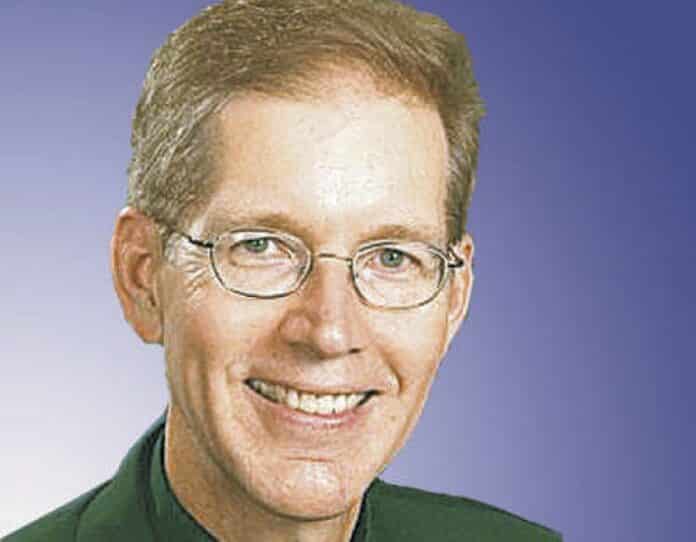This wasn’t supposed to happen. It has confounded all the experts.
Religious influence, rather than disappearing, is growing all over the world.
Throughout the 20th century, social scientists and other elites promoted the “secularization thesis,” the assumption that religion would all but disappear in the face of scientific progress, industrialization and expanded educational opportunities.
It has been a fundamental tenet of the social sciences that modernization would render religion obsolete.
Intellectuals such as Auguste Comte, Karl Marx and Sigmund Freud predicted that reason would eventually replace faith in God.
Tell that to China, which will soon become the largest Christian nation on earth.
Fenggang Yang, professor of sociology and director of the Center on Religion and Chinese Society at Purdue University, said that since 1980, the church in China has grown at an average rate of 10 percent per year, and that by 2030 it will be home to 250 million Christians.
Consider West Africa and East Africa, which are not only undergoing rapid development, but where the church is experiencing exponential growth.
In the former Soviet Union, Eastern Orthodoxy, Islam and evangelical Protestantism have thrived while atheistic Marxism has declined.
Even in secular Europe, not only has religion refused to disappear, but theologically conservative religion is growing among both Christians and Muslims.
Evangelical Christianity is the fastest growing religion in France, with a new evangelical church opening every 10 days on average.
Church attendance in London has increased in recent years due to immigration, and nearly half of all church-goers are non-white.
In contrast, atheism (the belief that there is no God) and agnosticism (uncertainty about the existence of God) have been in global decline for decades.
In 1970, atheism and agnosticism together accounted for 19 percent, or nearly 1-in-5 of the world’s people. By 2025, that number is expected to fall to 9.7 percent or less than 1-in-10, a loss of nearly half in 55 years.
Why the decline?
The reasons include lack of diversity, lack of fertility and lack of appeal.
Unlike Christianity, which encompasses diverse populations geographically, culturally and racially, atheism is limited largely to China, which is becoming increasingly Christian, and to white people in Europe who reproduce at sub-replacement levels.
Professor Craig Keener of Asbury Theological Seminary conducted a sweeping study of the claims of miracles across a wide variety of cultures, and he contends that the rejection of the possibility of the supernatural is an impulse that is deeply Eurocentric.
Eric Kaufmann, professor at the University of London and author of the 2010 book “Shall the Righteous Inherit the Earth?”, writes that 97 percent of the world’s population growth is taking place in the developing world where 95 percent of the people are religious.
Moreover, low fertility rates in the developed world encourage migration from the developing world, leading to religious resurgence in the developed countries.
Concerning America, Kaufmann writes, “High evangelical fertility rates more than compensated for losses to liberal Protestant sects during the 20th century.”
“In recent decades, white secularism has surged, but Latino and Asian religious immigration has taken up the slack, keeping secularism at bay. Across denominations, the fertility advantage of religious fundamentalists of all colours is significant and growing.”
He adds that after 2020, their demographic weight will begin to tip the balance in the culture wars to the conservative side, including issues such as abortion and the biblical account of creation.
In Europe, the birthplace and stronghold of evolutionary thought, creationism has spread rapidly among people of all faiths — Jews, Muslims, Catholics, Protestants and Hindus — despite the efforts of evolutionists to censor creationists.
Jun-yuan Chen, professor of paleontology at the Nanjing Institute of Geology and Paleontology, has written, “In China we can criticize Darwin but not the government; in America, you can criticize the government but not Darwin!”
Finally, there is atheism’s inherent lack of appeal.
Rodney Stark, professor of sociology at Baylor University and an agnostic, writes in his book “The Triumph of Faith,” “People want to know why the universe exists, not that it exists for no reason, and they don’t want their lives to be pointless. Only religion provides credible and satisfactory answers to the great existential questions.”
He adds, “Secularists have been predicting the imminent demise of religion for centuries. They have always been wrong. It is their unshakable faith in secularization that may be the most ‘irrational’ of all beliefs.”
The skeptical share of humanity is decreasing. De-secularization is an established trend.
Christianity has become the first truly global movement, bridging racial, ethnic and cultural divides. The same cannot be said of either atheism or secularism.
It’s ironic that atheists have criticized evangelical Christianity for being too white and patriarchal, when there is probably no less diverse group on earth than western atheists, a shrinking number of mostly white men who earn the distinction of being on the wrong side of both God and history.
The Rev. John Armstrong is pastor of Grace Lutheran Church in Columbus, and may be reached at [email protected].





